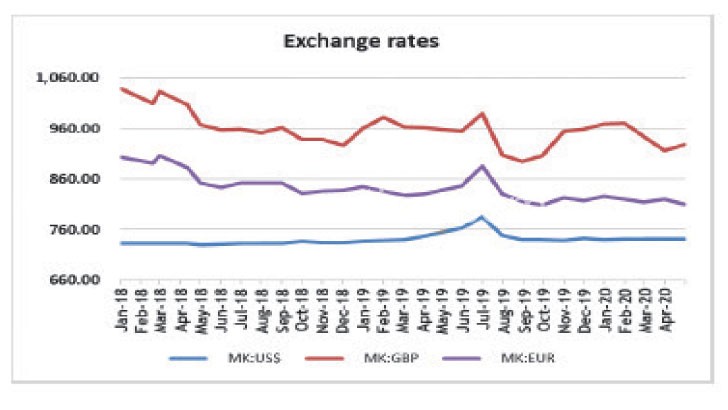Pressure mounts On kwacha
Investment and advisory firm Nico Asset Mangers says the stability of the local unit remains uncertain due to impending unprecedented expenditure for importing medical supplies to tackle the novel coronavirus (Covid-19) pandemic.
This, the firm says, is despite the opening of the tobacco season which is expected to prolong the stability of the kwacha.
The projection by Nico Asset Managers comes at a time the country’s nominal exchange rate is seen to have largely stabilised relative to major trading currencies supported by adequate foreign exchange reserves on the market despite the pandemic.
According to the financial market developments reports, the kwacha has appreciated to the pound to trade at K913 from K974 in January.

The local unit has also braved the euro and rand to trade at K810 and K40 from K827 and K51 in January, respectively. But the kwacha remained largely stable to the dollar, slightly appreciating to the current K742 from K744.
Said the firm in its April Monthly Economic Review report: “Due to lockdowns instituted in several of our trading partners, it would be difficult to export goods to such countries.
“Since we do not export medical supplies, which are in high demand now and are receiving waivers during the lockdowns, it might take time before we start exporting the agricultural products that we produce.”
Currently, Malawi’s gross official reserves under the direct control of the central bank stand at $730.31 or 3.46 months of import cover, a slight decline from $785.31 or 3.76 months of import cover recorded in February.
However, Reserve Bank of Malawi (RBM) spokesperson Mbane Ngwira told Business News on Tuesday that although the country’s foreign reserves have slightly declined, the $91 million (about K67 billion) provided by the International Monetary Fund (IMF) under the Rapid Credit Facility and the foreign currency generated from tobacco sales will cushion the forex reserves.
“Based on our calculations, we see that imports of medical supplies also have little impact on destabilising the kwacha as imports of other goods in the country have currently subsidised,” he said.
Financial Market Dealers Association (Fimda) president Patricia Hamisi observed that although the effects of Covid-19 have seen an increase in imports in certain sectors such as pharmaceuticals, there has been a decrease in other sectors such as hospitality and manufacturing, which in a way, has netted off the effect on gross imports.
She said: “We, however, foresee that fuel importation and other imports will go up again due to the forthcoming elections.
“However, this should be cushioned by the tobacco proceeds which will result in a continued stable exchange in the short-term as opposed to slight appreciations that occur during tobacco season.”




